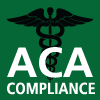- Home
-
News
- Back to parent navigation item
- News
- National Compliance Officer Day 2025
- Accounting & Auditing
- AI
- AML
- Anti-Bribery
- Best Practices
- Boards & Shareholders
- Cryptocurrency and Digital Assets
- Culture
- ESG/Social Responsibility
- Ethics & Culture
- Europe
- Financial Services
- Internal Controls
- Regulatory Enforcement
- Regulatory Policy
- Risk Management
- Sanctions
- Surveys & Benchmarking
- Supply Chain
- Third Party Risk
- Whistleblowers
- Opinion
- Benchmarking
- Certification
- Events
- Research
- Awards
-
CW Connect
- Back to parent navigation item
- CW Connect
- Sign In
- Apply
- Membership
- Contact
THIS IS MEMBERS-ONLY CONTENT
You are not logged in and do not have access to members-only content.
If you are already a registered user or a member, SIGN IN now.
Related articles
-
 News Brief
News BriefCommunication and relationships is increasingly critical for compliance teams
2025-06-04T20:56:00Z By Ian Sherr
Compliance is increasingly in the spotlight as companies are tackling everything from artificial intelligence and other new technologies to risk management and mitigation. But it’s soft skills of communication and relationship building that are becoming the most critical tools for success.
-
Article
Trump takes another swing at controlling independent agencies
2019-04-15T20:51:00Z By Joe Mont
The Trump administration is trying a new strategy to seize control over independent agencies’ rulemaking processes and the guidance they issue.
-
 Article
ArticleFed seeks comments on framework for foreign banks
2019-04-10T20:14:00Z By Joe Mont
The Federal Reserve Board is seeking public comments on a regulatory framework that would more closely match the rules for foreign banks with the risks they pose to the U.S. financial system.
- Terms and Conditions
- Privacy Policy
- Do Not Sell My Info
- © 2025 Compliance Week
Site powered by Webvision Cloud







